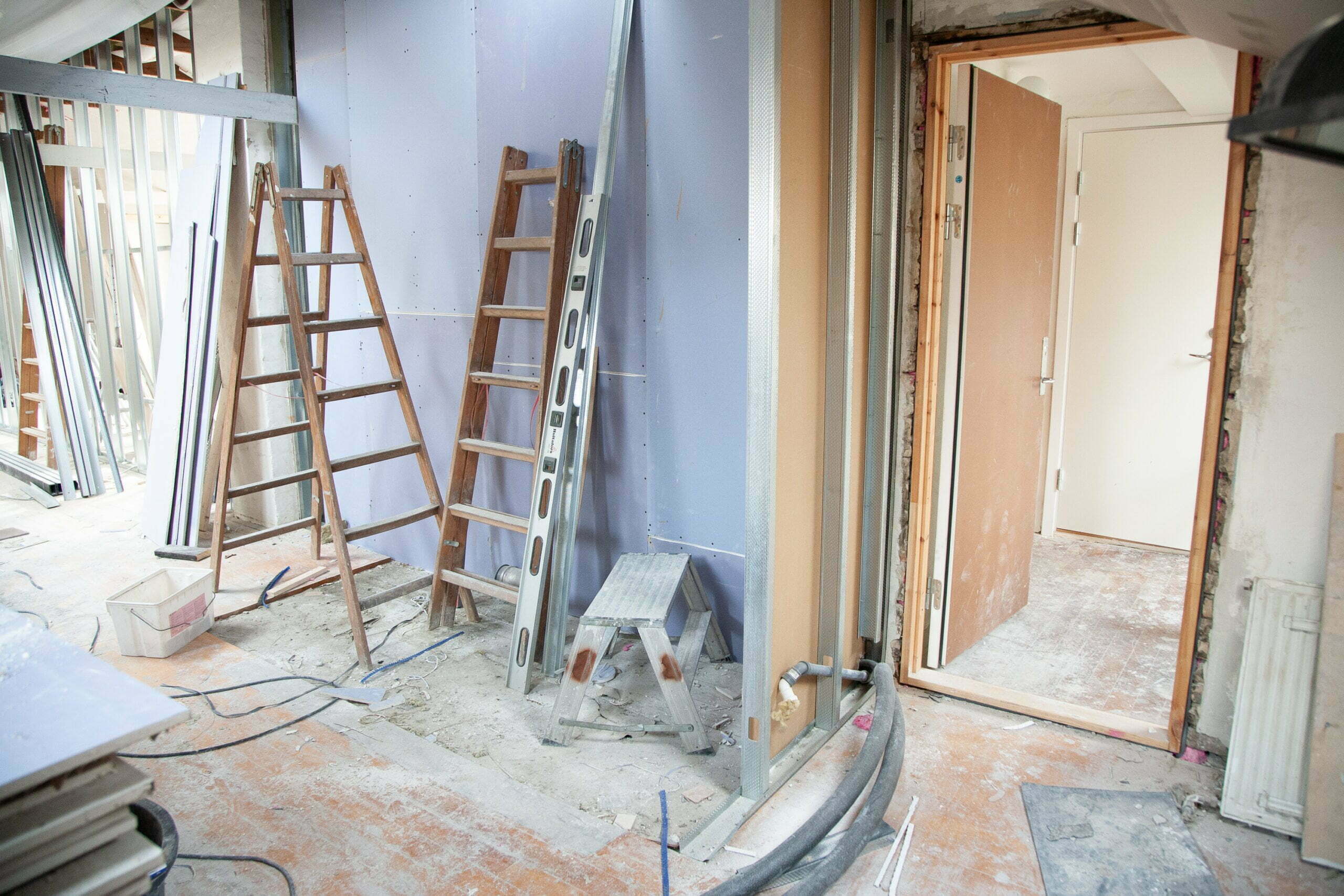So, you’ve finally decided to take on that long overdue home improvement project. You’ve brainstormed ideas, created a budget, and even made a checklist of materials needed. But now comes the most crucial step: choosing the right contractor. With countless horror stories floating around about contractors gone wrong, finding the perfect match can seem like a daunting task. But fear not, because in this article, we’ll guide you through the process of selecting a contractor who not only fits your budget but is also experienced, reliable, and trustworthy. From researching local contractors to asking the right questions, we’ve got you covered. It’s time to turn your dream home into a reality!
Understanding Your Home Improvement Project
Undertaking a home improvement project is an exciting endeavor that can greatly enhance the comfort, functionality, and aesthetic appeal of your living space. Whether you’re looking to renovate your kitchen, add an extension to your home, or upgrade your bathroom, it’s crucial to approach the project with a clear understanding of your needs and goals. By taking the time to assess your requirements and envision the desired outcome, you can lay a strong foundation for a successful home improvement project.
Assessing Your Needs and Goals
Before diving into any home improvement project, it’s important to assess your needs and goals. Take a moment to evaluate what prompted you to consider making a change or improvement to your home. Are you looking to create a more functional space, increase your home’s value, or simply enhance its aesthetics? By identifying your goals, you can better communicate your vision to potential contractors and ensure that the project aligns with your objectives.
Determining the Scope of the Project
Once you have a clear understanding of your needs and goals, it’s time to determine the scope of your home improvement project. Consider the specific areas of your home that will be affected by the renovation or upgrade. Will it be a partial or complete remodel? Do you plan on adding square footage to your home or modifying the existing layout? Understanding the scale of the project will help you find the right contractor who is experienced in handling similar projects.
Setting a Realistic Budget
Home improvement projects can vary significantly in terms of cost, and it’s important to set a realistic budget right from the start. Consider how much you are willing to invest in your project and be mindful of any financial constraints. A well-defined budget will not only help you narrow down your contractor options but also ensure that you don’t overspend. Remember to account for unexpected expenses that may arise during the course of the project to avoid any financial surprises.
Researching and Identifying Potential Contractors
Finding the right contractor for your home improvement project can be a daunting task, but it’s crucial to invest time and effort into researching and identifying potential candidates. By following a systematic approach, you can increase the likelihood of hiring a skilled and reputable professional who can bring your vision to life.

Asking for Recommendations
One of the most reliable ways to find a trustworthy contractor is by asking for recommendations from friends, family, neighbors, or coworkers who have recently completed a similar home improvement project. Their firsthand experiences can provide valuable insights into the quality of work, reliability, and professionalism of the contractors they hired. Don’t hesitate to reach out and ask for their recommendations.
Checking Online Directories
Another effective method of finding potential contractors is by checking online directories specifically designed for home improvement services. These directories often list contractors with detailed information such as their areas of specialization, contact details, and customer reviews. Take the time to read through reviews and gather as much information as possible about the contractors you are interested in.
Contacting Local Home Builders’ Associations
Local home builders’ associations can be a valuable resource for finding reputable contractors in your area. These associations often have directories of members who adhere to industry standards and ethical practices. By contacting these associations, you can obtain a list of contractors who have met certain criteria and have a proven track record of delivering quality work.
Evaluating the Credentials and Experience
Once you have compiled a list of potential contractors, it’s essential to evaluate their credentials and experience to ensure that they are qualified to tackle your home improvement project. Taking the time to verify their license and insurance, assess their specializations and experience, and review their past projects and references will give you confidence in making an informed decision.
Verifying License and Insurance
Before hiring any contractor, it’s crucial to verify their license and insurance. Licensing requirements vary from state to state, so familiarize yourself with the regulations in your area and ensure that the contractor holds the necessary licenses and permits. Additionally, ask for proof of insurance to protect yourself from any liability should an accident or damage occur during the project.
Assessing Specializations and Experience
Every contractor has their area of expertise, and it’s important to assess whether their specialization aligns with the specific requirements of your home improvement project. If you’re considering a bathroom remodel, for example, look for contractors who have extensive experience in bathroom renovations. Evaluating their expertise will give you confidence that they have the right skills and knowledge to handle your project.
Reviewing Past Projects and References
A reputable contractor will be proud to showcase their past projects and provide references from satisfied clients. Take the time to review their portfolio of work to assess the quality of craftsmanship and attention to detail. Reach out to their references and ask about their experience working with the contractor. This will give you valuable insights into their professionalism, timeliness, and overall satisfaction with the completed projects.
Interviewing and Meeting Potential Contractors
Once you have narrowed down your list to a few potential contractors, it’s time to take the next step and interview them to gauge their suitability for your home improvement project. Meeting face-to-face allows you to assess their communication skills, professionalism, and whether they understand and share your vision for the project.
Preparing a List of Questions
Before meeting potential contractors, it’s advisable to prepare a list of questions that will help you gather the information you need. Ask about their experience, their approach to project management, and how they handle unexpected challenges. Inquire about their subcontractors and ensure they have a reliable network of professionals to support their work. Don’t hesitate to ask for clarification or elaboration on any aspect of the project that concerns you.
Scheduling Face-to-Face Meetings
Once you have your questions ready, schedule face-to-face meetings with the potential contractors. This will give you an opportunity to assess their demeanor, professionalism, and whether you feel comfortable working with them. Pay attention to their communication skills, how well they listen to your ideas, and whether they offer thoughtful suggestions or solutions.

Assessing Communication and Professionalism
During the meetings, pay close attention to the communication style and professionalism of the contractors. Do they listen attentively to your needs and provide thoughtful responses? Are they easy to reach and responsive in their communication? Assessing these qualities will give you an indication of how well they will communicate and collaborate with you throughout the project.
Getting Detailed Estimates and Contracts
Once you have met potential contractors and are satisfied with their abilities, it’s important to obtain detailed estimates and contracts before making a final decision. These documents will provide a clear understanding of the cost, timeline, and scope of work.
Requesting Written Estimates
Request written estimates from each contractor that outline the cost breakdown for materials, labor, permits, and any other expenses associated with the project. Be wary of contractors who provide vague or incomplete estimates, as this could lead to disputes later on. Review each estimate carefully and ensure it aligns with your budget and project requirements.
Reviewing Scope of Work and Timeline
In addition to the cost, review the scope of work provided by each contractor. Ensure that they have included all the necessary tasks, such as demolition, installation, and cleanup, to prevent any surprises or omissions during the project. The timeline for completion should also be clearly stated to avoid any unexpected delays.
Ensuring a Complete and Clear Contract
Once you have chosen a contractor, it’s crucial to have a comprehensive contract that protects both parties. The contract should include details such as the scope of work, materials to be used, timeline, payment schedule, and any warranties or guarantees. Read the contract carefully and seek legal advice if needed to ensure that it is fair, clear, and provides adequate protection for your interests.

Checking for Legal Compliance and Permits
Before any work begins, it’s essential to ensure that your contractor is compliant with building codes and has obtained the necessary permits. Failure to comply with building codes can result in costly fines and delays in the project. Confirm with your contractor that they are knowledgeable about the local regulations and that they will handle all necessary permits and inspections.
Ensuring Compliance with Building Codes
Building codes are established to ensure the safety, integrity, and quality of construction. It’s important to verify that your contractor is well-versed in these codes and will adhere to them throughout the project. This will give you peace of mind, knowing that the work is being carried out in compliance with industry standards.
Confirming Permits and Inspections
Certain home improvement projects require permits and inspections to ensure that they meet the building code requirements. Your contractor should take responsibility for obtaining the necessary permits and scheduling inspections as required. Before work begins, confirm with your contractor that all permits are in place and that inspections will be conducted at appropriate stages to ensure compliance.
Checking for Liability Insurance
Accidents can happen during home improvement projects, and it’s crucial to protect yourself from any liability. Ensure that your contractor has sufficient liability insurance coverage to protect both them and you in case of property damage, accidents, or injuries that may occur during the project. Request proof of insurance from your contractor and verify its validity with the insurance provider.
Understanding Payment Terms and Financing Options
Before finalizing your agreement with the contractor, it’s important to establish clear payment terms and explore any financing options that may be available to you. This will ensure that you have a mutually agreed-upon payment schedule and will help you avoid any financial hardships or misunderstandings during the project.
Establishing Payment Schedule
Work with your contractor to establish a payment schedule that suits both parties. A typical payment schedule may include an initial deposit, progress payments based on completed milestones, and a final payment upon completion. Ensure that the payment milestones are reasonable and tied to tangible progress to maintain accountability and protect your investment.
Negotiating Financing Options
If your home improvement project requires significant financial investment, consider exploring financing options to ease the burden on your budget. Many contractors may have partnerships with financial institutions or be able to recommend reputable lenders who specialize in home improvement loans. Take the time to research different financing options to find the best fit for your needs.
Avoiding Upfront or Excessive Payments
Exercise caution when it comes to upfront payments or excessive down payments. Reputable contractors typically request a deposit or down payment to secure their services, but it’s important to ensure that the amount is reasonable and reflects the scope of work and materials required. Be wary of contractors who ask for full payment upfront or demand excessive down payments, as this can be a red flag indicating potential financial issues or poor workmanship.
Evaluating Communication and Collaboration
Effective communication and collaboration are vital to the success of any home improvement project. To ensure a smooth working relationship with your chosen contractor, it’s crucial to evaluate their responsiveness, ability to understand your vision, and their readiness to address any challenges that may arise.
Assessing Responsiveness and Availability
During the initial meetings and communications with potential contractors, assess their responsiveness and availability. Prompt responses to your inquiries or concerns indicate their level of commitment and professionalism. Consider how accessible and available they will be during the project, as open lines of communication are essential for effective collaboration.
Evaluating the Ability to Understand Your Vision
A competent contractor should not only listen attentively to your ideas but also demonstrate the ability to understand your vision. They should be able to translate your requirements into a concrete plan and offer insightful suggestions or alternative solutions when needed. Discussing your vision with potential contractors will help you gauge their level of comprehension and the likelihood of achieving the desired results.
Discussing Possible Challenges and Solutions
No home improvement project is without its challenges, and it’s important to evaluate how potential contractors handle unexpected situations. During your meetings, discuss possible challenges that could arise during the project and inquire about the contractor’s problem-solving strategies. A contractor who is proactive in identifying and addressing potential issues will contribute to a smoother project experience.
Reviewing and Comparing Proposals
Once you have gathered all the necessary information and met with potential contractors, it’s time to review and compare their proposals. This step will help you evaluate the overall value offered by each contractor and make an informed decision.
Comparing Price and Scope of Work
When reviewing proposals, carefully compare the prices and scope of work offered by each contractor. While the cost is an important factor, prioritize the quality and completeness of the scope of work. Consider whether the prices align with the level of expertise and reputation of the contractor, as the lowest bid may not always be the best value in the long run.
Considering the Quality of Materials
In addition to the price and scope of work, evaluate the quality of materials proposed by each contractor. Research the suggested materials to ensure they meet your expectations in terms of durability, aesthetics, and environmental impact. It’s important to strike a balance between affordability and quality to ensure satisfactory results.
Assessing Overall Value
Assessing the overall value offered by each contractor will require careful consideration of all the factors mentioned above – price, scope of work, materials, and the contractor’s credentials and experience. It’s essential to weigh these factors against your needs, goals, and budget to determine which contractor offers the best value for your home improvement project.
Checking for Insurance Coverage and Warranties
Before finalizing your decision, it’s crucial to confirm that your chosen contractor has adequate insurance coverage and offers appropriate warranties. This will protect you from any potential issues or problems that may arise after the completion of the project.
Verifying Insurance Coverage
Ensure that your contractor has sufficient insurance coverage, including general liability insurance and workers’ compensation insurance. Request proof of insurance and verify its validity with the insurance provider. This will protect you from liability in case of accidents, property damage, or injuries during the project.
Understanding Manufacturer and Contractor Warranties
Inquire about the warranties provided by the manufacturers of the materials and products used in your home improvement project. Additionally, ask about any warranties or guarantees offered by the contractor for their workmanship. A reputable contractor will stand behind their work and offer warranties that provide peace of mind in case any issues arise after project completion.
Ensuring Clear Reporting and Documentation
Throughout the home improvement project, ensure that there is clear reporting and documentation of all aspects, including scope changes, progress updates, and any issues that may arise. Regular communication and documentation will help avoid misunderstandings and provide a record of the project’s timeline and specifications. Maintain open lines of communication with your contractor and request regular progress reports to stay informed about the project’s status.
Choosing the right contractor for your home improvement project is a crucial decision that can significantly impact the success and satisfaction of the project. By understanding your needs and goals, conducting thorough research, evaluating credentials and experience, and focusing on effective communication and collaboration, you can find a contractor who will bring your vision to life. Before signing any contracts, take the time to review and compare proposals, ensuring that all legal requirements, permits, and insurance coverage are in place. With the right contractor by your side, your home improvement project will be a rewarding experience that adds value and enjoyment to your home for years to come.



